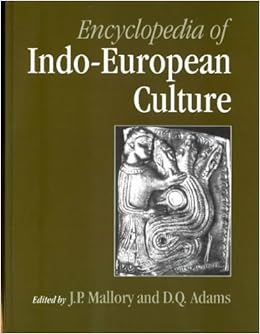Root / lemma: ai-dh-, i-dh-, nas. i-n-dh- (*heu̯i-ĝh-)
English meaning: to burn
Note:
Common illyr. -ĝh- > -dh- phonetic mutation
German meaning: `brennen, leuchten'
Material: Old Indian inddhḗ `inflamed, is aroused' (pass. idhyáte, Perf. īdhḗ, part. Perf. Pass iddhá-ḥ), indhana-m `lighting'.
Gr. αἴθω `lights, burns' (αἰθόμενος), αἴθων, αἶθοψ `igneously, sparkling', ἰθαίνεσθαι θερμαίνεσθαι Hes., hylleisch αἰδῶσσα αἴθουσα'loggia'; changing by ablaut κακ-ιθής Hes. `ravenously' (W. Schulze KZ. 29, 269 = Kl. Schr. 329). common gr.-illyr. -ks- > -ss- phonetic mutation
o-St.:gr. αἶθος m. `fire' (αἰθός `burntly') = Old Indian ēdha-ḥ ̣m. `Firewood' = ags. ād, ahd. mhd. eit m. `Glow, pyre': zero grade probably norw. schwed. id `leuciscus idus' (a bright carp kind), cf nhd. dial. aitel `leuciscus cephalus' as the `shining'; besides u- stem *aidhu- in gall. VN Aedui, air. áed `fire', also as MN; lat. aedēs `a dwelling of the gods, a sanctuary, a temple', ursprüngl. `the domestic stove', also aedis = maked. ἄδις ἐσχάρα Hes.
From the verbal adjective in -to- derived probably lat. aestās, - ātis `warm season, summer' (from *aisto-tāt-, idg. *aidh-to-); aestus, - ūs (from *aidh-tu-) `heat, glow, surf', aestuāre `cook, surge, roar';
Maybe alb. (*aestā-, *vesna, *vièsientá) vjeshta `autumn, harvest time (long summer)': Go. asans `harvest time, summer' [common alb. prothetic v- before bare initial vowels] hence Vesta `goddess of hearth and its sacred fire' was an Illyrian goddess, also alb. vatra (*vas-tra) `hearth' with -tre suffix.
agerm. MN Aistomōdius (`with quick-tempered courage'), ags. āst f. `dried stove', engl. oast `drying room, drying loft'.
r- formants: gr. αἰθήρ `the upper air' (maked. ἀδῆ), αἴθρα `the cheerful sky' (maked. ἀδραιά), αἴθριος `brightly, cheerfully (from the weather)', for what changing by ablaut ἰθαρός'cheerfully', Old Indian vīdhrá- (=vi-idh-rá́-) ds.
l- formants: gr. αἰθάλη, αἴθαλος `soot', maked. ἄδαλος; under acceptance of a development from `shining, appearing' `too apparently' one puts a little bit constrainedly here ags. īdel `vain, pointless, trifling', ahd. ītal, nhd. eitel.
In idg. *aidh-lo- is based germ. ail- in ags. ǣlan `burn' to āl n. `Flame', and in ags. ǣled m., aisl. eldr (Gen. elds) `fire, flame'. From different development-grading ags. ǣled are borrowed cymr. aelwyd, bret. oaled `from fire, stove' (M. Förster Themse 4872). Mir. āel `lime' could have originated from *aidhḫlo-. However, could germ. and kelt. words be formed also directly by the root 4. 4. ā̆i- with -lo-suffix.
s-formants: es-St. gr. αἴθος n. `Glow, fire' = Old Indian ḗdhas- n. `Firewood'.
Continuing formation: aisl eisa f. (*aidhḫsḫōn) `fire', norw. `Hearth', mnd. ēse f. `chimney, fire stove' (however, ahd. essa `chimney, hearth' see under ā̆s- `burn'); av. aēsma m. `Firewood' (*aidh-s-mo-, cf without s Old Indian idhmáḫḥ m. ds.); in addition balt. *aismiā in lit. íesmė `firewood'; lit. aistrà f. `passion'; ačech. niestějě (fem. Pl.) `stove', later nístěj (with n- suggestion by wrong decomposition of the connections *vъnḫěstěję, vъn-ěstějachъ, Berneker 275) from *aidh-s-to; in addition zro grades *idh-s-to- in slov. istė́je, stė́je Pl. `stove hole'; to Johansson IF. 19, 136 also Old Indian iṣ̌ṭakā `of burnt bricks', av. ištya- n. `brick, (backed brick)'.
In *indh- goes back: alb. geg. idhunɛ, tosk. idhëtë `bitter', tosk. idhɛrím `bitterness, anger, irritation', hį̄dhitë Pl. `nettle' (Jokl studies 29).
Note:
Alb. and gr. are the only IE languages to preserve the old laryngeal ḫ- in : alb. geg. hidhun `bitter', hithra `nettle';



 Mada ne razumem Matasovićevo podvlačenje da se najverovatnije radi o baš ilirskom (u užem smislu) od svih starih jezika, odnosno na čemu se zasniva to mišljenje.
Mada ne razumem Matasovićevo podvlačenje da se najverovatnije radi o baš ilirskom (u užem smislu) od svih starih jezika, odnosno na čemu se zasniva to mišljenje. 
 )
)















